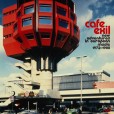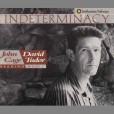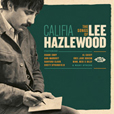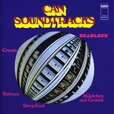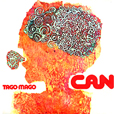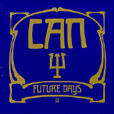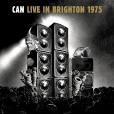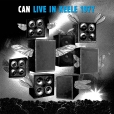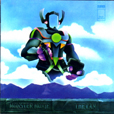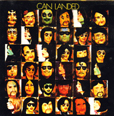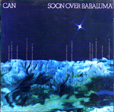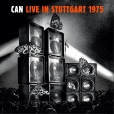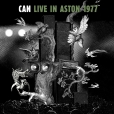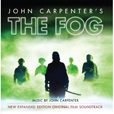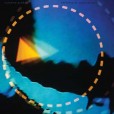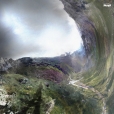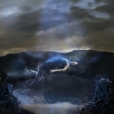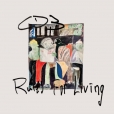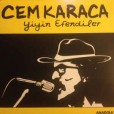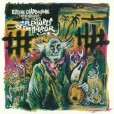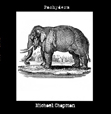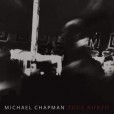Your basket is empty

Telling ninety one-minute stories (sped up or slowed down according to length), whilst pianist David Tudor plays bits from a couple of Cage’s compositions, in a different studio. A 1959 Folkways.
Jennifer Lucy Allan: ‘The heads know — forums and published books alike agree — that 76-77 is the best of the Can live years (Keele included). A couple of the tracks from this show have been included on fan-made ‘best of’ live bootlegs over the years. And wow, are they right.’
Peter Margasak, describing this album in The Wire: ‘The meticulous environments and rhythmic trenches Can had been building from the very start always cast a hypnotic spell, but when they had the freedom to inhabit the material without limitations they achieved the sort of transcendental brilliance that the greatest improvisations can deliver. We may recognise fleeting glimpses of studio tracks here and there, but they’re merely stepping off points for extended trips that convey much greater profundity, propulsion and ecstasy.’
The original Silva Screen album (with twenty minutes of newly released music) plus a second twenty-track disc of the entire score, from original tapes, remastered by long-time JC collaborator Alan Howarth.
The opening track of the Ecstatic Computation album, re-imagined by eight friends and long-time collaborators.
‘Kali Malone turns in a slowed-down, austere and eerie version for two Organs; Evelyn Saylor a vocal ensemble conveying its choral, psychedelic and vitalistic nature. Walter Zanetti composes Fantas for electric guitar. Bendik Giske’s reinterpretation for saxophone and voice captures its atmosphere and its psychic meteorology. Carlo Maria resynthesizes for TR808 and MC202, with an eye on the dancefloor. Jay Mitta’s Singeli pitches up the percussion, unleashing the frenetic, shifting matter within the original into euphoric dance. Baseck’s variation is a hardcore rave fantasia; whilst Kara-Lis Coverdale’s take is a phantasmagoria for piano that gently, yet inexorably, captures the relentlessness chimerical qualities of the original, unveiling its spectral backbone.’
‘A kind of melted reconfiguration of popular (occasionally popular-on-the-fringes) styles. These familiar sounds are reconfigured and muddied. Hindsight frames the sources in an almost primordial light, to the extent that they feel like folk art.
‘Glyphted and Franzbranntwein sound like pop songs stripped to their bones and distorted, as if the styles they vaguely recall are as old as time. It’s a stunningly weird effect. Songs like The Duchess and Farmhand exacerbate this impression. The record comes to feel yearningly ahistorical. But in a way that feels pertinent?’
Perhaps you remember the French music producer Coni’s record for The Trilogy Tapes.
For the inaugural release of his own label, he presents the debut of a new alias.
‘Inspired by dramatic modern landscapes, and suffused by haunting memories, the record is an attempt to seek beauty in the midst of a chaotic and saturated present. Running over with intense rhythms, flicking hi-hats, fierce voices, melancholic pads and abject distortion, Transperce whips up a kind of industrial catharsis.’
